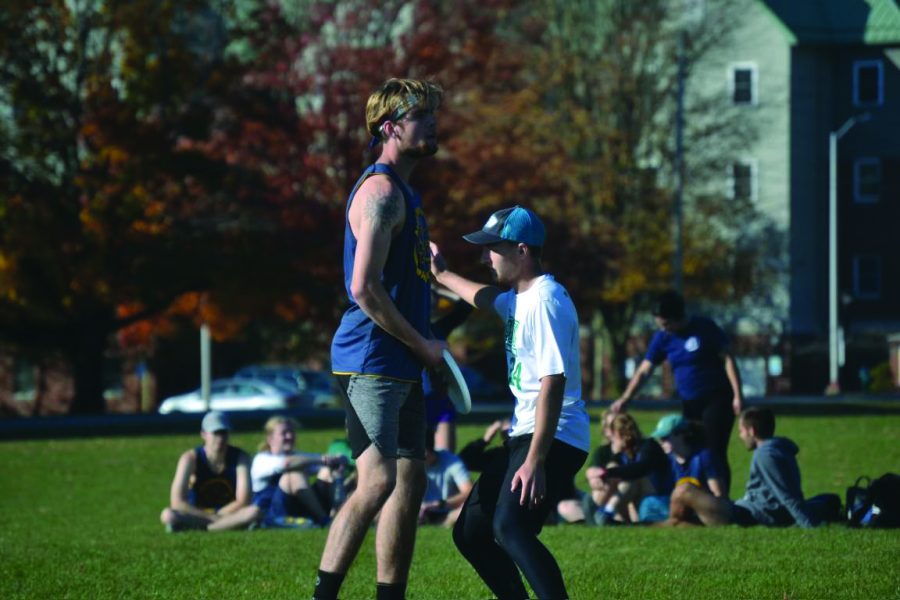By CHELSEA FLEISCHMAN and MALCOM MCCRUMB
[email protected] &
[email protected]
Students will complete the annual Report of Student Experience (RSE) for each of their professors before the end of the semester. Although the anonymous two-part survey only takes a matter of minutes, its results are a part of a larger teacher-quality evaluation analyzed by the professors, their colleagues, and the dean.
The RSE uses student feedback to comparatively evaluate all Allegheny professors and has become an integral part of the faculty promotion and termination processes.
“People are paying a lot of money to go to classes and since one of the things we offer is an emphasis on teaching small classes and a fair amount of faculty interaction with the students, we place a premium on effective teaching,” said Laura Quinn, Professor of English and member of a Faculty Review Committee (FRC), a department-specific board of experienced professors who evaluate their peers as part of an ongoing process that looks at a professor’s overall performance.
In addition to the RSEs, the FRC and Dean of the College Linda Demerritt rely on self-evaluations and current tenured-professor evaluations to review current professor status.
Associate Dean Ben Slote said that part of his job is in talking to new faculty members about what the RSEs mean, and how to read them. He further suggests that new professors create their own mid-semester evaluations.
“There’s a lot of anxiety connected to them because the RSEs are one of the forms of evidence by which faculty are evaluated,” he said. “So they’re really a significant thing.”
Slote said that professors can obtain a copy of their individual RSEs from their department chair, though they may ask to see the originals as well.
He said when distributing the surveys to a colleague’s class, he always encourages students to be particularly detailed in the narrative portion.
“The clarity of getting a 4 on those numerical questions, you know, how does that contribute to a faculty’s attempt to improve?” he said. “It’s not that descriptive and not that helpful.”
English Professor Jim Bulman has been at Allegheny for 36 years, 30 of which have been in a tenured position. He said that the key to understanding RSEs, apart from more elaborately detailed narratives, is in finding patterns.
“I’ve had colleagues who have taught two sections of the same course in the same semester and have taught them the same way and the numerical results are completely different between the two,” he said. “It just depends on the dynamics of the group you have.”
Bulman also said that the general student approach to the narrative portion has always been varied, but both he and Slote attested to changing their course syllabi or structure according to the responses.
“Some students take the narratives more serious than others and I think that’s inevitable,” he said. “I think that’s always been true.”
“If there’s a teacher I don’t like, I will go out of my way and give a few extra comments,” PJ Arora,’14, said. “With a teacher I like I’ll keep it pretty brief because there’s not too much to improve on.”
“If students write not applicable, or nothing, I’ll think okay, I guess they liked the course well enough but it would have been helpful for me to know if there was even something small that could have been improved,” Bulman said.
Bulman said that when he first arrived on campus, the only existing evaluative system was entirely organized, conducted and printed by Allegheny Student Government. The evaluations were still based on five-point-scale and ASG printed a booklet of the results that was printed solely for student knowledge.
Slote also said that despite changes in the RSEs over time, students still struggle to take the evaluations seriously.
“I always say the challenge for students is even though you’ve done this a hundred times you still need to take it seriously because it has this significance it bears significantly on how faculty are evaluated,” he said. “So in reading through them, I think most people want to do the right thing… I think that characterizes the Allegheny student generally.”






